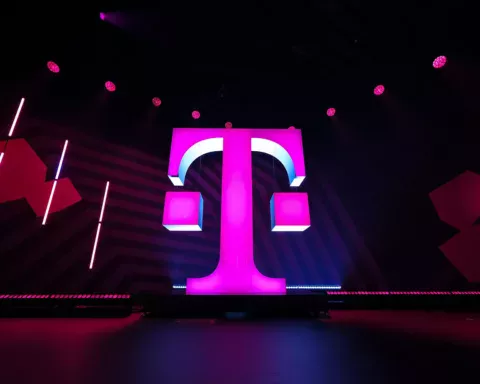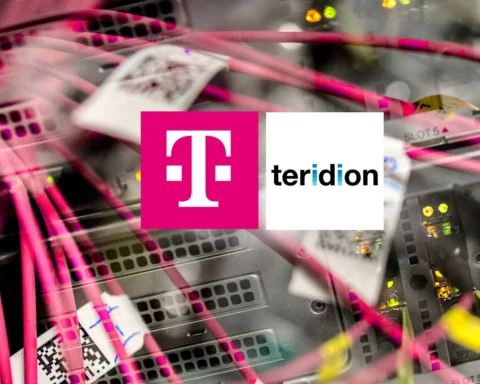In the innovation trial in Warsaw, Poland, the partners were able to verify the capability over a 5G Standalone (SA) network with voice and 5G data sessions in parallel. This network setup integrated a 5G Core from Ericsson and IP Multimedia Subsystem (IMS) from Nokia. The calls were completed on commercial terminals from Samsung and Xiaomi and a Mobile Test Platform from Qualcomm. This innovation milestone is an important step towards the commercial introduction of seamless native 5G voice services in Deutsche Telekom networks.
In cloud-native 5G SA networks, operators will be able to deliver high quality voice services without having to rely on LTE as anchor. The addition of VoNR to the superior data transmission quality of 5G technology will allow customers to enjoy voice and data services in parallel. VoNR is therefore expected to play a role in many data services enabled by 5G, from enhancements to voice quality in existing services to completely new services around immersive video conferencing and augmented or virtual reality.
“High quality and seamless voice calling remains a must-have service for our customers in the 5G era. The addition of 5G VoNR can be a differentiator for next generation immersive applications that integrate high speed 5G data with high definition audio,” says Alex Choi, SVP Strategy & Technology Innovation, Deutsche Telekom. “Our collaboration with best-in-class partners to validate end-to-end 5G VoNR interoperability is an important step towards the future of 5G voice services for our customers.
Jan Karlsson, Senior Vice President and Head of Digital Services, Ericsson, says, “The end-to-end 5G voice over NR going live with the first call in Deutsche Telekom network further demonstrates the strength and recognition of our cloud native 5G Core network for standalone 5G networks.”
Marc Erhardt, Head of Cloud and Network Services in the Customer Team Deutsche Telekom, Nokia says, “Voice communication remains a key feature also in the 5G world. Subscribers demand high-quality voice services and voice also plays a role in many of the new data services enabled by 5G. Successful 5G strategies therefore must include a plan for embedding voice into 5G services, and the IMS core will be key for this. Our participation in this successful trial is the latest validation reflecting the strong capabilities of the Nokia IP Multimedia Subsystem and Telephony Application Server.”
“This achievement is a step forward in realizing the full potential of 5G for consumers and industries. The capabilities of mature 5G networks will bring significant benefits to end-users as well as produce a plethora of innovative new services and applications,” says Enrico Salvatori, senior vice president and president, Qualcomm Europe/MEA, Qualcomm Europe, Inc. “Both the Xiaomi Mi 11 Lite 5G and the 5G smartphone form factor test device used in this activity are powered by Snapdragon 780G and 888 5G Mobile Platforms with Snapdragon 5G Modem-RF Systems respectively which support a wide range of 5G capabilities including both 5G VoNR and 5G SA.”
“Galaxy 5G devices are already changing the way we communicate and how we experience the world around us,” says KJ Kim, EVP and Head of Mobile R&D Office, Mobile Communications Business, Samsung Electronics. “Samsung’s longstanding partnership with Deutsche Telekom continues to lead the growth of 5G and as Galaxy S21 5G comes with next generation 5G VoNR, we look forward to giving more people access to innovative mobile experiences.”
“Close collaboration along 5G ecosystem is crucial to unlock the true potential of 5G.” Says James Munn, Head of Global Carrier Operations, Xiaomi. “Combining new 5G services, such as VoNR, with our world-class 5G smartphones will ensure we are able to offer the best possible experience to our customers.”
Details of Lab setup
To achieve this 5G VoNR breakthrough Deutsche Telekom, together with Nokia and Ericsson, has established the 5G Standalone network infrastructure in test mode at Deutsche Telekom’s lab in Warsaw, Poland, where testing and engineering is conducted on behalf of the entire Group.
The setup includes the integration of a 5G Core (5GC) from Ericsson and an IMS (IP Multimedia Subsystem) from Nokia, whereby the IMS core provides voice as a 5G application service. The transmission was tested over 5G NR Standalone (SA) Radio Access Technology from both Ericsson and Nokia. The voice calls were completed using the Samsung Galaxy S21 5G, Xiaomi Mi 11 Lite 5G, and a 5G smartphone form factor test device powered by the Snapdragon 780G and 888 5G Mobile Platforms with Snapdragon 5G Modem-RF Systems.






